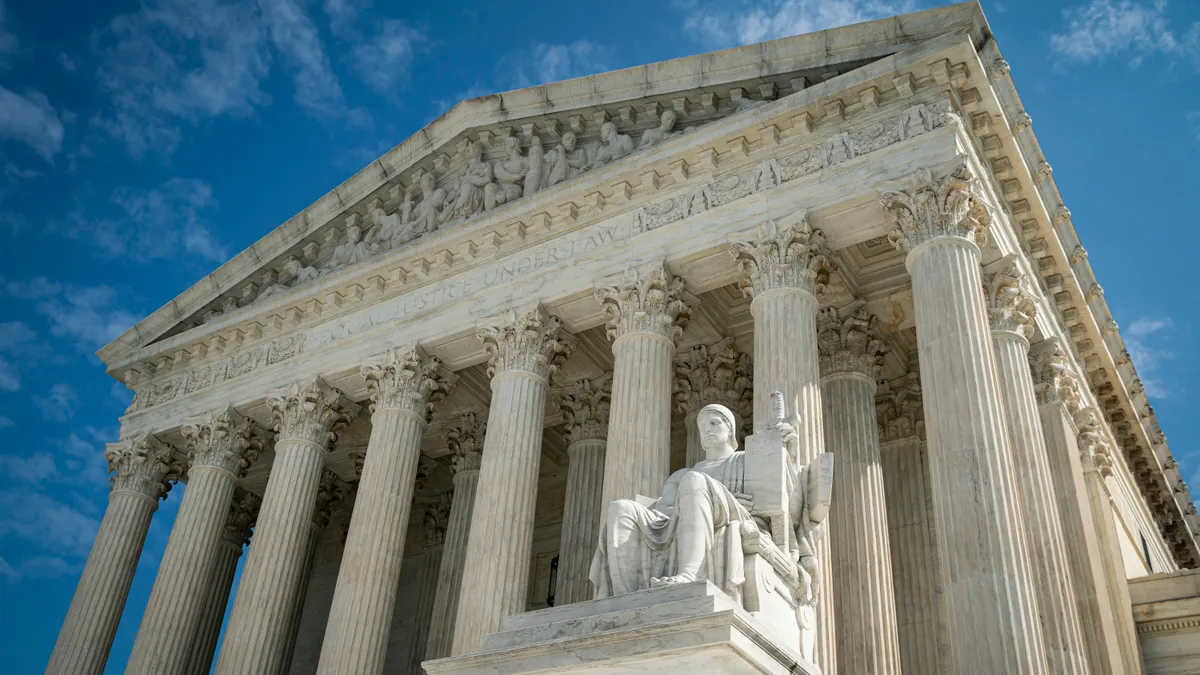Dive Brief:
- The default statute of limitations for lawsuits against the U.S. requires a complaint to be filed within six years. Most courts had interpreted that to mean six years from the time the agency first enacted the regulation.
- The Supreme Court ruled Monday, however, that the six-year statute of limitations does not begin to run until the plaintiff suffers an actual injury attributable to the regulation.
- The ruling by a deeply divided court marks the latest blow to the power of government agencies and makes it easier for companies to challenge agency regulations in court.
Dive Insight:
While much attention on the final day of the Supreme Court’s term was focused on its presidential immunity ruling, another 6-3 decision in Corner Post, Inc. v. Board of Governors lowers the bar for businesses seeking to challenge agency regulations.
Writing for the majority, Justice Amy Coney Barrett noted that the Administrative Procedure Act’s basic presumption is that anyone injured by agency action should have access to judicial review.
The case involved a 2011 regulation by the Federal Reserve Board that set standards for the amount of any debit card transaction fees. A North Dakota convenience store that did not open until seven years later claimed in 2021 that the regulation was injuring its business.
Both the federal district court and the 8th Circuit Court of Appeals dismissed the case as time barred by the six-year limitations period. But the Supreme Court disagreed.
Justice Barrett explained that preventing a business that had not yet been injured from bringing suit would be an unfair result. Writing in concurrence, Justice Brett Kavanaugh said a contrary ruling would give agencies the “power to issue rules free from potential suits by unregulated but adversely affected parties – businesses, environmental plaintiffs, workers, the list goes on.”
In dissent, Justice Ketanji Brown Jackson wrote that the Court’s ruling “wreaks havoc on government agencies, businesses, and society at large,” and called the decision “extraordinarily consequential.”
“In one fell swoop, the Court has effectively eliminated any limitations period for APA lawsuits, despite Congress’s unmistakable policy determination to cut off such suits within six years of the agency action,” she said.
The decision follows Friday’s ruling in Loper Bright Enterprises v. Raimondo that courts need not defer to a federal agency’s interpretation of the law simply because the statute the agency administers may have gaps or be unclear.










